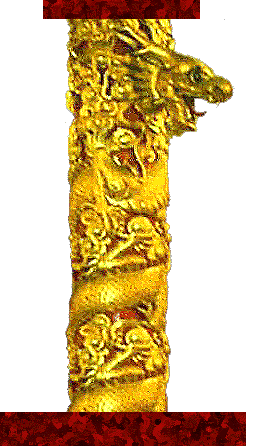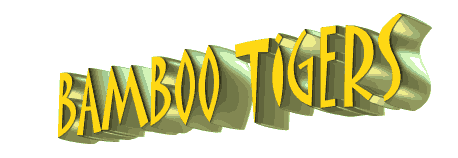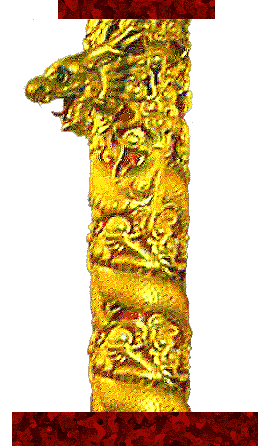| |
In another part of the city, fortyish Inspector John McKenna stirred from sleep to silence the furious ringing of his telephone. An angry thought flashed through his mind. In the dozen years he had worked in Homicide prior to transferring to Intelligence three months previously, he had never suffered more from what he called the "new breed" in Operations than he had in recent times. In the old days, they called you at night only if there were legitimately a homicide out there in the streets, but what with the women and the green kids taking over in that department, you could never be sure anymore. It took experience and judgment to determine when to sound an off-hours alarm and when to let a tired man rest.
McKenna slapped the receiver against his ear and growled his name. He held his tirade when a female voice on the other end of the line shouted: "Get over to the Golden Dragon! There's been a massacre down there!" The shock catapulted him to his feet, into his clothes, out the door, and behind the wheel of his car in a matter of minutes, but not before he instructed Operations to call Timothy Simmons at home and likewise dispatch him to the Golden Dragon. A man of acute perception, McKenna assumed without question that this was a gang-related crime.
Still groggy from his traditional monthly night out with his wife that evening, Simmons rolled out of bed immediately and started driving into town. It seemed ironic that he and McKenna had just embarked on a project involving the preparation of long-range intelligence on the Chinese gangs. They were improving a card-file system, including photographs, to disseminate information to the field units that might help control gang activities, and now he was on orders to view a prime example of what the system was designed to prevent.
Racing through San Francisco, McKenna muttered an inward apology to Operations. Tonight, they were right on target. There was nothing green about the voice that had given him the news. That gal knew the real meaning of an emergency.
On the way to Chinatown, he reviewed what he knew of the Golden Dragon. Immensely popular with late-nighters in pursuit of the traditional hsiao yeh supper before going to bed, it also attracted a large share of the tourist trade for lunch and dinner. Its chow mee fun, or fried rice-noodles, were justly famous, as were the many other specialty dishes marking it as Cantonese style. Owned by members of the Hop Sing Tong around the corner on Waverly Place, the Golden Dragon naturally served as a hangout for the Hop Sing Boys and other youth gangs which might happen to be on non-warring terms with each other at a given moment.
The Hop Sing connection registered most sharply in McKenna's impromptu review. As he approached the scene of the crime, the snarl of ambulance and police traffic jamming the area of Washington and Grant forced him to park near Portsmouth Square. Seeing a few gang kids hanging around, it occurred to him to head directly for the Hop Sing Tong building in hope of finding out if the perpetrators had sought refuge behind its green marble faade fronting the narrow confines of Waverly Place. He struck out on foot, propelling his bulk up the steep hill with the surprising grace of many a big man who can still turn a fancy step on the dance floor despite excess weight.
The Tong's headquarters lay in darkness. McKenna's quick-witted theory, that the shooters might have scampered through the alley to hide out there before taking a quick hike to freedom, evaporated before the tightly bolted doors and dead silence within. At the corner, the street area in front of the Golden Dragon glittered like a Hollywood movie set. The crowd's fringes spilled into Waverly Place in the wake of ambulances hauling out payloads of the dead and the injured.
McKenna forced his way through with the polite and practiced authority of a plainclothes policeman who knows his job. After years in Homicide, he felt himself prepared for anything upon arrival inside the restaurant, but his first thought was: Holy Christ! This is impossible! This is unbelievable!
In his twelve years of homicide investigation, he had never observed a crime scene as catastrophic as that which lay before him. He had served in Korea and, in the workaday world of his job, had stood witness to violence on a massive scale. This topped everything. What struck him most was the wetness--food adrift in pools and rivulets of blood, water and tea. The Golden Dragon seemed to have been blown apart. It showed all the signs of war.
McKenna instinctively knew which war it was. It could only be that of the Asian community's gang kids --the cool, collected children who artfully concealed the mark of savage tigers in their hearts as they greeted outsiders with humility and charm while secretly laying masterful and sophisticated plans for destruction. In this case, the sophistication had gone awry. The Golden Dragon had become a stockyard of slaughter.
McKenna instantly deduced that if the case were ever to be cracked, the spotlight of investigation would have to fall on the most crazed kids he knew. Several names came to mind. They were among the many names that would be whispered through the streets of Chinatown in the weeks and months that followed, but distilling factual evidence from gossip and conjecture was a process that lay ahead on this night of the Golden Dragon.
The sight of one of the first victims McKenna saw gave the policeman's heart a good thump.
"My God," he cried aloud to no one in particular, "they finally got him! They finally got the doomsday kid, the eternal survivor!"
The young man at his feet was soaked with blood, his body sprawled face down on the tiles of the floor beneath the dragon pillar near the front of the restaurant. At first glance, the dead man, his face twisted unnaturally to the side, looked to McKenna like one of the most prominent of Chinatown's hoodlums, whose chief stock in trade was his swaggering pride in being an imminent target for power usurpers. A second glance proved McKenna wrong. The victim was not the gang leader, but his mistake in identity prompted the detective to realize that the killers probably had thought so, too. That was a lead: look for the young gangster's archest rivals.
McKenna sighed. There are a helluva lot of those, he thought.
As an investigator not in immediate pursuit of a suspect, it was McKenna's job to maintain the scene in a state of order to preserve any fragments of evidence that might lead to eventual solution. Everything had to be frozen in place. Nothing should be touched. Hold on to potential witnesses, victims not requiring medical treatment, and anybody suspicious. Let the Crime Lab personnel touch things with white gloves, but not remove them. Let the police photographer photograph, but make sure he does it without disturbing anything.
These were ground rules, but McKenna wondered what he was to do with a scene already so screwed up? It was too late to fall back on the investigator's time-honored rule of thumb regarding physical evidence: when in doubt, keep your hands in your pockets; touch nothing.
The dishwashers and busboys, most of them Mexicans, oddly enough in Chinatown, were sweeping and cleaning up under orders from management to ready the establishment for business the next morning. They had to mop around bodies. Waiters cleared off tables, attempting a return to what they considered normal routine. Survivors wandered aimlessly through the litter, exiting and re-entering the restaurant incessantly. Some of them turned to the wall, their arms raised to cover their eyes against the terrifying memory of what they had seen. Traumatized, they shook their heads in disbelief. Employees and patrons all seemed to move in a daze.
John Barisone, the Crime Lab officer, walked up to McKenna and cried in exasperation: "They're handing me bullets! They don't leave anything alone!"
"Yeah," McKenna grunted in reply, "I guess they're just trying to forget the goddamned thing ever happened."
The luckiest stroke for the injured victims was the threatened terrorist attack on an unnamed hotel earlier in the evening. Although the attack did not materialize, emergency protocol called for police and medical coverage of all hotels on a massive scale. Arrangements had even been made for the standby of extra ambulances at Letterman Army Hospital in the Presidio.
On call that night, not only at Letterman, but also at San Francisco General Hospital, were a number of army doctors recently returned from surgical assignments in Vietnam. All were experienced in the type of battlefield trauma represented by the Golden Dragon incident. Several victims would owe their lives to the proximity of ambulances to the scene and to the combat-trained surgeons on duty in the hospitals to which they were rushed.
San Francisco may not have been able to prevent what happened, but it was making a magnificent effort to minimize the loss of life in the aftermath.
| |
|









